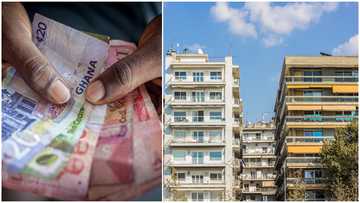How The Government Of Ghana Can Support The Real Estate Industry Amid The High Cost Of Living In Ghana
- The real estate industry has not been friendly to the average Ghanaian, with properties priced in dollars and landlords demanding one or two years' rent advance
- The situation has worsened, considering the cedi depreciation against the dollar and the high cost of living in the country
- However, there are ways that the Government of Ghana can cushion the real estate industry from the nation's economic turmoil
PAY ATTENTION: Сheck out news that is picked exactly for YOU ➡️ find “Recommended for you” block on the home page and enjoy!
Real estate is expensive in Ghana, and the current economic crisis is not helping matters. According to Bloomberg, Ghana's cedi is currently the worst-performing currency in the world. Efforts by the government and economic experts to ratify the problem have proven futile. This crisis has affected the real estate sector, making it almost impossible for people to buy or rent houses.
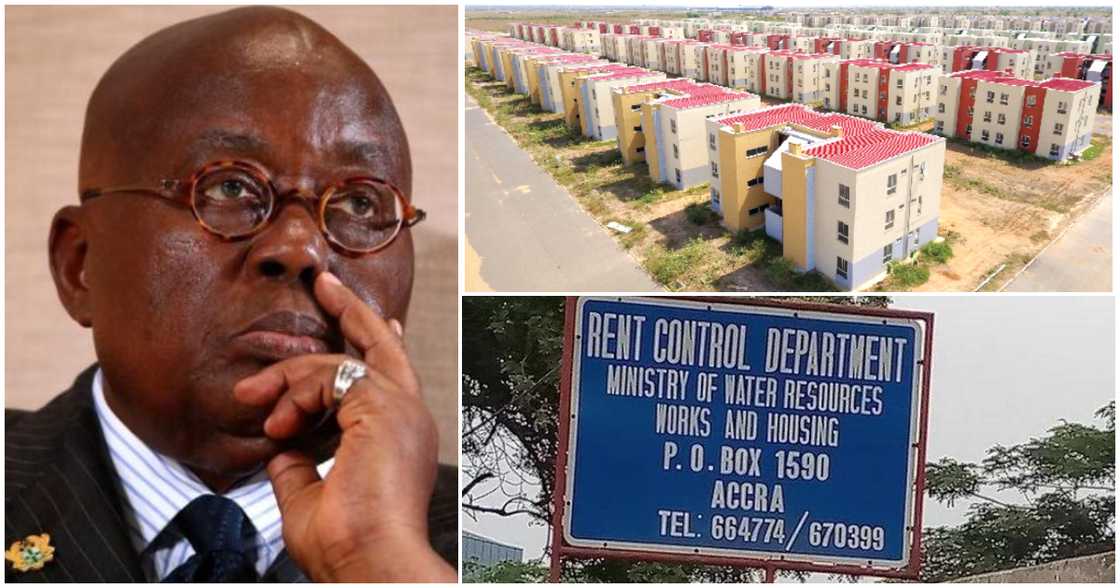
Source: UGC
Property seekers are not the only ones affected. Real estate developers and mortgage providers are bearing the brunt of the economic crisis, which has inflated property prices in the country. The good news is that there are ways the Ghana government can insulate the real estate market from the current economic hardship. YEN.com.gh mentions them below.
Kickstart Affordable Housing Project
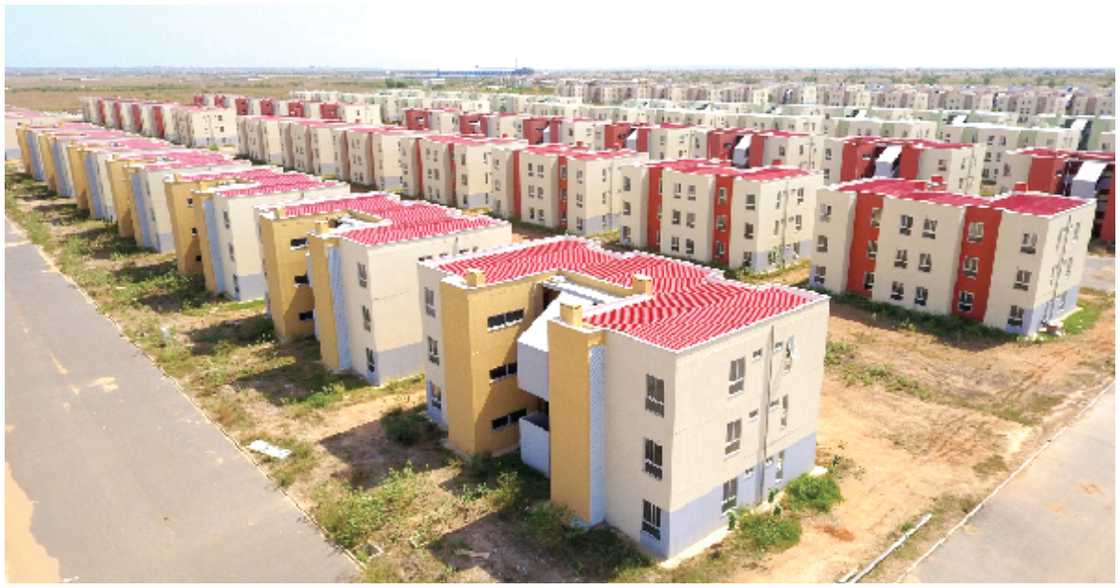
Source: UGC
PAY ATTENTION: Click “See First” under the “Following” tab to see YEN.com.gh News on your News Feed!
The Government of Ghana spent about $200 million on affordable housing projects to mitigate the country's housing crisis, many of which have been abandoned. The State must revive the construction and renovation of the housing projects and sell them out to working professionals at a heavy discount with a payment plan. It will go a long way to mitigate the country's housing deficit, which stands at 2 million units.
In 2021, Alhaji Collins Dauda, a former minister of works and housing, and four others were accused on 52 counts of causing the State to suffer a financial loss of $200 million due to the Saglemi Affordable Housing Project.
Provide Public Housing
Public housing is almost non-existent in Ghana. Public housing is any rental property owned and managed by the Government, typically to provide inexpensive accommodation. Many renters in Ghana have lamented the high cost of rent in Accra. According to a survey by Numbeo, Accra was the second-most expensive city in the world.
Also, the one or two years rent advances charged by most landlords in the country had worsened the situation. Thus, the country needs to provide public housing at reduced costs to renters and take a monthly charge. It will make it possible for even the employees of low-paying jobs to afford decent accommodation in Ghana.
Malaysia is a good example of a country with a successful public housing system. They divided their public housing system into four phases, namely:
- Housing the Poor (1971–1985)
- Market Reform (1986–1997)
- Slums Clearance (1998–2011)
- State Affordable Housing (2012-to date)
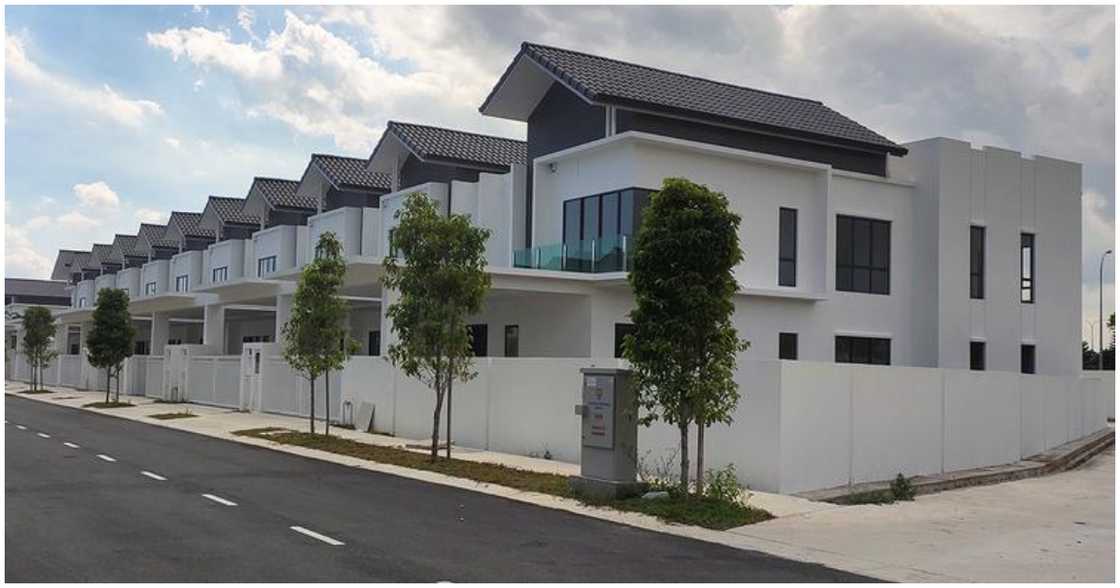
Source: UGC
Before the 1970s, the Malaysian Government focused mostly on housing for public officials. Still, following the various phases of housing policy, it targets the hard-core poor and middle-income earners. The Federal and State governments have established additional programs over time to assist such groups of people in purchasing a home at incredibly low costs.
Government Should Offer Incentives For Property Developers
As mentioned earlier, homebuyers and tenants are not the only ones suffering in the real estate market due to Ghana's high cost of living. Private stakeholders in real estate and property developers are also feeling the heat. As such, the property sellers and construction companies are forced to raise the price of their homes, which were already being sold in dollars to cedi earners.
One way the Government can support them so they can put a reasonable price tag on their properties is to offer them incentives in the form of tax reliefs and exemptions. This is because most property developers import their building materials and have to pay heavy-duty fees at the port to clear them. As such, they factor in the fees when pricing their properties, which makes them too expensive for the average Ghanaian.

Read also
UK's most expensive home hits the market for $221 million, has 45 rooms and an indoor swimming pool
Enforce Rent Control Legislation
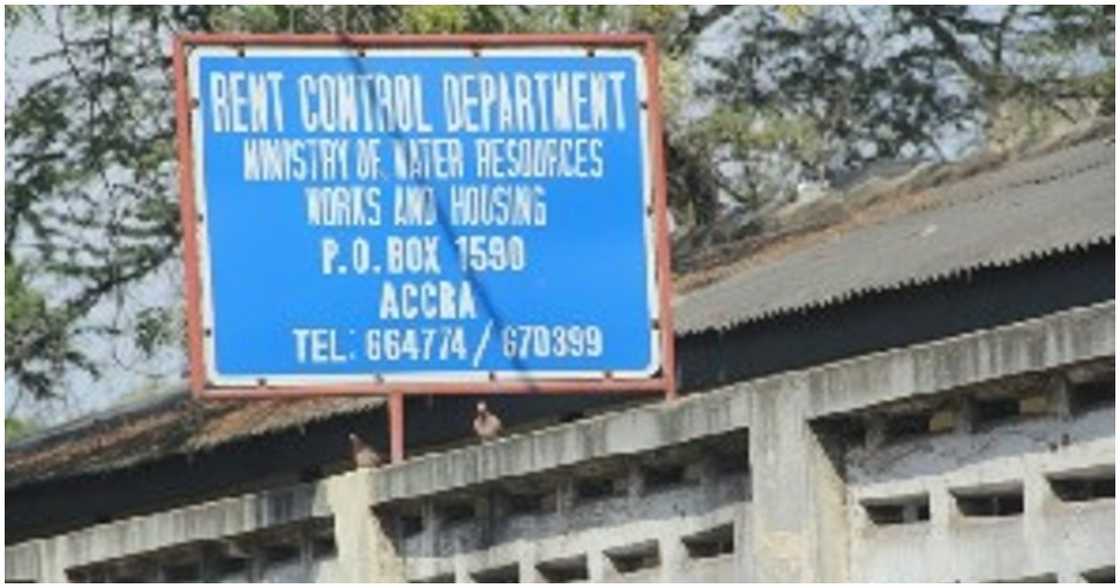
Source: UGC
According to Ghana's rent laws, it is an offence for landlords to charge more than six months of rent. Yet, that is not the case. Most landlords in the country typically charge one or two years' rent advance, making it impossible for many people to afford a decent home. The Ghana Government must enforce the rent laws by identifying and prosecuting landlords who flout the laws to serve as a deterrent to others.
Samuel Atta-Akyea, the former Minister of Works and Housing, said in 2018 that since the Government was unaware that the landlords were breaking the law, it was up to the public to report such landlords to the authorities. In an interview with Citi FM, he clarified by saying:
It is you, the Ghanaian citizen, who will go and inform the police that landlord X is attempting to break the law and should be arrested. You are fully aware that we must enforce laws for the sanity of the country. The law will then become effective at that point.
Why Landlords In Ghana Charge 1 Or 2 Years' Rent Advance Instead Of Charging Monthly Rent
In an earlier story, YEN.com.gh wrote about why landlords in Ghana charge one or two years' rent advance. While other countries merely pay a monthly charge, Ghanaian landlords insist on lengthier lease agreements and frequently demand one or two years' payment upfront. Landlords are stubborn about changing their behaviour, despite Ghanaians' complaints about the cost of paying for one or two years' worth of rent upfront.
New feature: Сheck out news that is picked for YOU ➡️ find “Recommended for you” block on the home page and enjoy!
Source: YEN.com.gh

